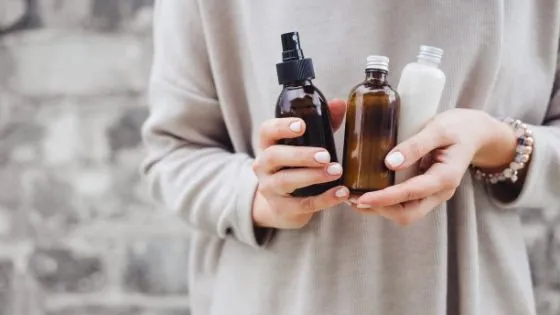By Erika Koutroumpa,
In early March, an independent lab filed a petition with the FDA for the recall of several acne treatments on the market, until the regulatory investigation is over. The acne products of various brands, such as Clinique and Proactiv are composed of high levels of benzyl.
Benzoyl peroxide is not harmful on its own and is often used topically, to combat skin ailments, such as acne. Albeit a high-quality antimicrobial agent, it is unstable in most formulas. However, according to the Valisure report, once it is exposed to high temperatures, the chemical compound breaks into benzene. Benzene is a colourless liquid with a sweet odour and is a natural component of crude oil. It is used in the production of various chemicals, including plastics, resins, synthetic fibres, rubber, dyes, detergents, and pharmaceuticals. While benzene has industrial applications, it is considered hazardous to human health due to its toxic properties.

Humans are primarily exposed to benzene when it exists in the air in gas form. The substance is also commonly detected in cigarettes and in the air outdoors, which contains low benzene from a variety of sources, including tobacco smoke and gas fumes from vehicles. Benzene begins to be detectable by humans at 60 parts of benzene per million parts (ppm) of air, while being easily recognizable at 100 ppm due to its characteristic sweet odour. If exposed to benzene for more than a year, there is an increased risk for cancer, especially leukaemia, where patients present a reduced number of red blood cells.
This is not the first time that Valisure has detected benzene in products used in daily life. It has found large quantities of the carcinogen in deodorants, sunscreens, shampoos, conditioners and even hand sanitisers. Benzene is detected in higher amounts in aerosol spray products, but the reason for this is unknown. It is mainly notorious for causing leukaemia and has also been associated to a lesser extent with ailments of the Central Nervous System and the reproductive organs.
Most OTC drugs are not reviewed and have not gained the FDA approval, but, there is a way that may lead them to the marketplace, and that is if they comply with applicable regulations and policies. The FDA has not evaluated whether this product complies. Currently, the FDA has a maximum limit of benzene that can be found in a product, but testing to check for levels of this is not legally obligatory.

For the FDA, recalls are a way of removing a product from the market or correcting it, if it violates laws regarding its quality and composition. These tend to be voluntary, with 21 CFR 7 giving out guidelines on how to execute a recall successfully and responsibly. On the rare occasion that a medical device poses a health risk and is not effectively recalled, an order can be issued by the FDA as per 21 CFR 810 Medical Device Recall Authority. However, if the violation is minor to the point of not being legally prosecutable, then the company can move voluntarily towards a market withdrawal to remove the faulty product.
As mentioned earlier, benzene has been found in products before, such as but not limited to hand sanitizers and sunscreens. But what makes it different this time? According to statements made by Valisure representatives, the benzene found in the tested products was not from cross-contamination, but from the conversion of the benzoyl peroxide used.
Over the past three years, consumers have been growing more aware of the potential harmful effects of benzyl found in everyday products. Consequently, since Valisure started issuing the results of their private investigations on benzene-compromised commercial products, it comes as no surprise that concerns have been voiced regarding the existing guidelines and how products are overseen by the FDA. However, the agency has claimed that Valisure must follow the same testing methods that drug manufacturers use, which are costlier than the way that the independent lab tests for benzene are conducted. Other critics caution against jumping to conclusions, calling for more testing to take place to confirm the results.
In conclusion, the petition for acne treatment recalls due to benzene contamination reveals pressing concerns in the skincare industry, indicating a potential gap in regulatory oversight. This highlights the need for stricter regulation by the FDA, emphasizing the importance of enhanced transparency and mandatory testing to ensure consumer safety.
References
- Why is cancer-causing benzene widespread in personal care products. Environmental Working Group. Available here
- Recalls, Corrections and Removals (Devices). US Food and Drug Administration. Available here
- Benzene. NIH National Cancer Institute. Available here
- Is your acne treatment safe? Cancer-causing chemical found in Proactiv, Clearasil and more. Available here
- Chemical linked to cancer found in Proactiv, Clearsil and Clinique acne creams. Available here
-
Health Canada should review acne treatment cancer claims: experts. Global News. Available here




